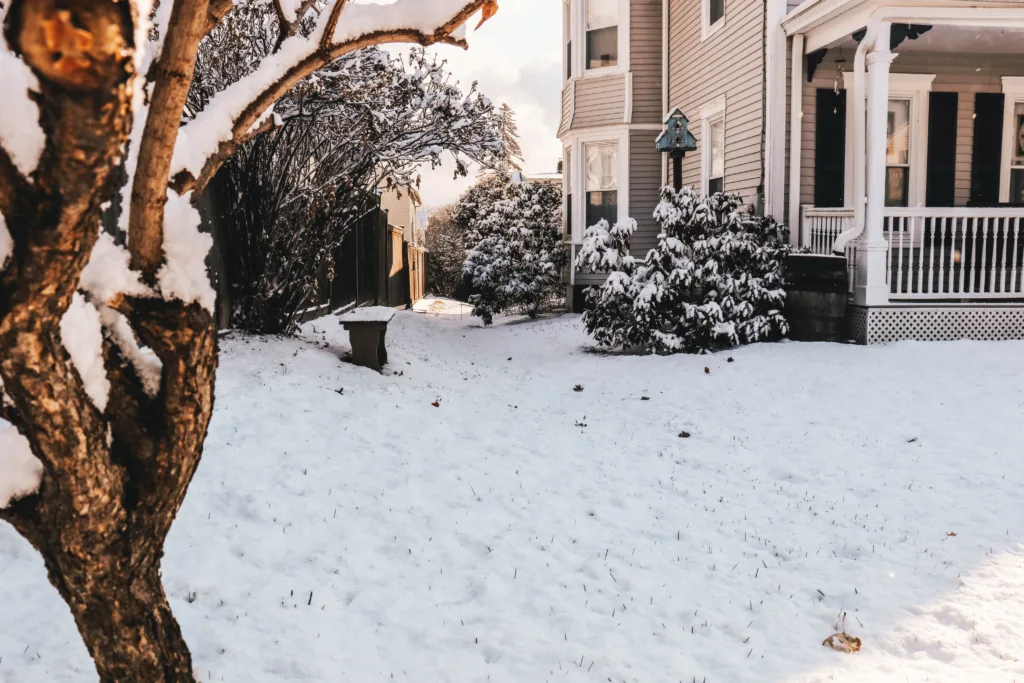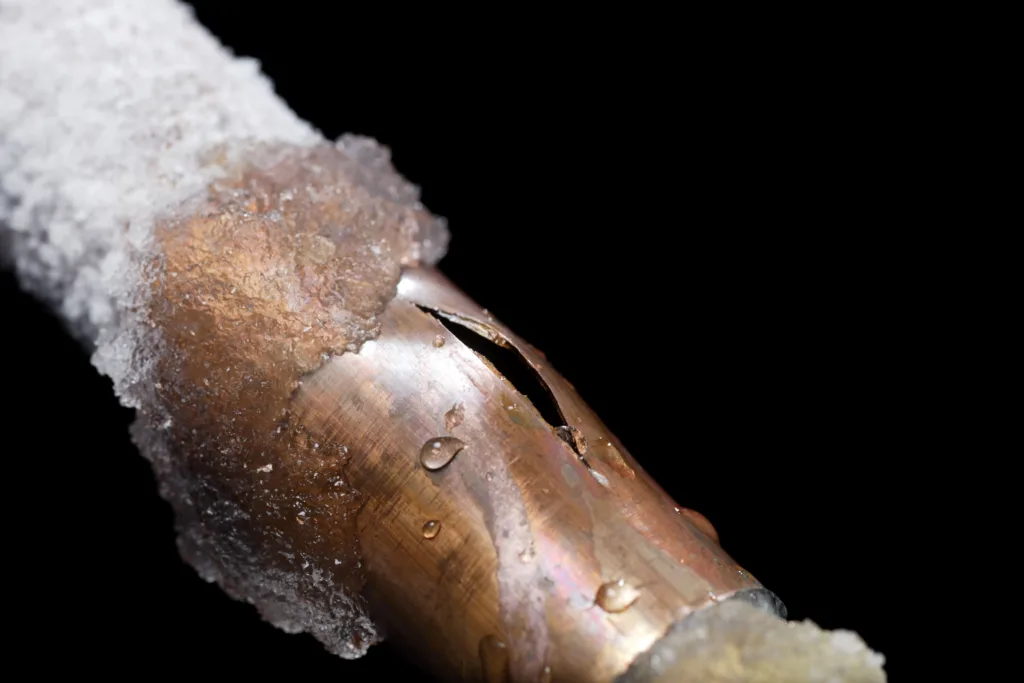Water is an essential resource that we use in our daily lives. It is used for cooking, drinking, cleaning, and many oter purposes. However, during freezing weather, water can become a major problem for homeowners. When temperatures drop below freezing, water can freeze inside pipes, causing them to burst. Burst pipes can cause extensive damage to your home and can be costly to repair. Therefore, it is important to know whether you should turn off your water during freezing weather.
The best way to prevent frozen pipes is to shut off the water. This is especially important if you are going to be away from your home for an extended period of time. By turning off the water, you eliminate the risk of frozen pipes and potential damage to your home. It is also a good idea to drain the water from the pipes and open all the fixtures. This allows any residual water to drain out, reducing the risk of freezing.
If you are not able to shut off the water, there are other steps you can take to prevent frozen pipes. One option is to insulate the pipes in unheated areas. This can be done using foam pipe insulation or heat tape. Insulating the pipes helps to keep them warm, reducing the risk of freezing. Another option is to keep the water moving. Moving water is less likely to freeze than still water. This can be done by leaving a faucet dripping slightly. While this may increase your water bill slightly, it is a small price to pay compared to the cost of repairing burst pipes.
It is important to note that not all pipes are created equal. Some pipes are more susceptible to freezing and bursting than others. Swimming pool supply lines and water sprinkler lines are particularly vulnerable. If you have these types of pipes, it is important to take extra precautions during freezing weather.
Turning off your water during freezing weather is the best way to prevent frozen pipes and potential damage to your home. If you are unable to turn off the water, there are other steps you can take to reduce the risk of freezing. Insulating pipes, keeping the water moving, and paying attention to vulnerable pipes are all important steps in preventing frozen pipes. By taking these steps, you can protect your home and ensure that your water supply remains intact during freezing weather.
Is It Better To Shut Off The Water During The Freeze?
It is highly recommended to shut off the water during a freeze. This helps prevent the water in the pipes from expanding and bursting the pipes. To properly shut off the water, locate the main shut-off valve and turn it off. Once the water is off, drain the pipes by opening all the fixtures such as faucets and showers. It is also suggested to leave the attic door open and any cabin doors where tere is a water connection. This allows heat to circulate and prevent freezing. It is important to note that if a pipe bursts, it can cause significant damage to your home and repairs can be quite costly. Therefore, taking preventative measures such as shutting off the water during a freeze is highly recommended.

Will Shutting Off Water Keep Pipes From Freezing?
Shutting off water alone will not necessarily keep pipes from freezing. In fact, shutting off water could actually lead to pipes freezing more quickly if there is any remaining water left in the pipes. This is because the standing water in the pipes can still freeze and expand, causing the pipes to burst.
To prevent frozen pipes, it is important to keep water moving through the pipes by allowing a small trickle of water to flow through the faucet. Additionally, it is recommended to locate and shut off any valves that control the water supply to outdoor faucets or pipes in unheated areas. This can help prevent water from entering tese pipes and freezing.
Insulating pipes in unheated areas, such as attics, basements, and crawl spaces, is another effective way to prevent frozen pipes. Insulation can help keep the pipes warm and prevent heat loss. It is also important to seal any gaps or cracks in walls, floors, or ceilings that allow cold air to enter and affect the pipes.
To summarize, shutting off water alone is not a guaranteed way to keep pipes from freezing. It is important to keep water moving through the pipes, locate and shut off any valves to outdoor faucets or pipes in unheated areas, insulate pipes, and seal any gaps or cracks to prevent cold air from affecting the pipes.
At What Temperature Should You Turn Off Water?
If you live in an area where freezing temperatures are expected, it is recommended to turn off your water supply and drain the pipes to prevent them from bursting. The ideal temperature to turn off your water supply is at or below 20℉ (-7℃). However, it is important to note that this temperature is only a guide and may vary depending on the location and condition of your pipes. It is best to consult with a professional plumber to determine the exact temperature at which you should turn off your water supply. Additionally, if you are goig to be away from your home for an extended period during freezing temperatures, it is recommended to turn off your water supply and drain the pipes as a precautionary measure.
At What Temperature Do Water Pipes Freeze?
Water pipes can freeze and burst when the outside temperature reaches 20 degrees Fahrenheit or below, according to Texas A&M University. It is important to note that this temperature threshold is not a fixed value, as other factors such as wind chill, exposure time, and insulation quality can also affect the freezing point of water in pipes. However, it is generally considered a good rule of thumb to take extra precautions when the temperature drops below 20 degrees Fahrenheit to prevent pipes from freezing and potentially causing costly damages. It is also worth noting that other pipes that are most likly to freeze are those that are exposed to severe cold, such as swimming pool supply lines and water sprinkler lines.

Conclusion
Water is a vital resource that plays a crucial role in our daily lives. It is essential for drinking, cooking, cleaning, and hygiene, among other uses. However, it is crucial to be aware of the potential dangers that can arise from water, such as frozen pipes in cold temperatures. To prevent such incidents, it is advisable to take precautions such as insulating pipes in unheated areas, finding shut-off valves for emergencies, and draining water when not in use. By taking thee measures, we can ensure that our water supply remains safe and reliable. Let us all make an effort to conserve water and use it wisely, as it is a finite resource that we cannot afford to waste.
